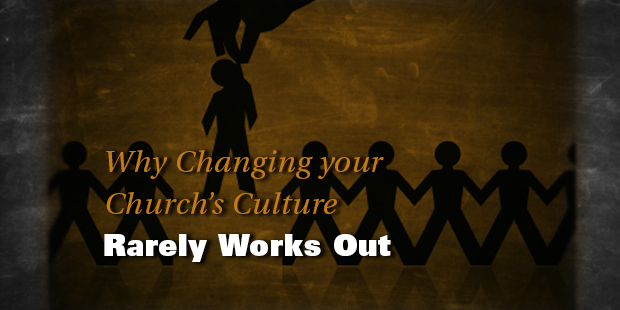
Why Changing Your Church’s Culture Rarely Works Out
The Boston Globe recently ran a front-page story in their “Ideas” section on organizational culture, inspired by some depressing events involving the Boston University hockey team. It was much more impactful than the average writing about culture, and raised the important question: Why do conversations about an important topic like culture typically go nowhere, leading companies to waste time and money with “cultural change efforts” which very seldom work?
Here is the problem: First, virtually no one clearly defines what they mean by “culture,” and when they do they usually get it wrong. Second, virtually no one has read the original research that shows why culture – when clearly defined – is so important, how it is formed, and how it changes.
Definition: Culture consists of group norms of behavior and the underlying shared values that help keep those norms in place. Take your work, for example, a place where almost everyone shows up between 8:55 and 9:05. Why? Not because the CEO has decreed it, or because people are fired if they don’t do it. That’s just the way it is! That is a group norm. Why does it exist? And why doesn’t it go away when Gen X or Y individuals are hired? My guess: People are hired who embrace the value of respecting others, including other people’s time, so they also show up to meetings on time, and anyone who doesn’t gets a glaring look from everyone else.
Where does culture come from? It usually comes from the founders of the group. For whatever reason, they value certain things and behave in ways that seem to help the group succeed. Success is key. So it seeps into the group’s DNA.
How does culture change? A powerful person at the top, or a large enough group from anywhere in the organization, decides the old ways are not working, figures out a change vision, starts acting differently, and enlists others to act differently. If the new actions produce better results, if the results are communicated and celebrated, and if they are not killed off by the old culture fighting its rear-guard action, new norms will form and new shared values will grow.
What does NOT work in changing a culture? Some group decides what the new culture should be. It turns a list of values over to the communications or HR departments with the order that they tell people what the new culture is. They cascade the message down the hierarchy, and little to nothing changes.
In summary, that’s the whole story.
Read more from John here.

Tags: Change, Folklore, John Kotter











